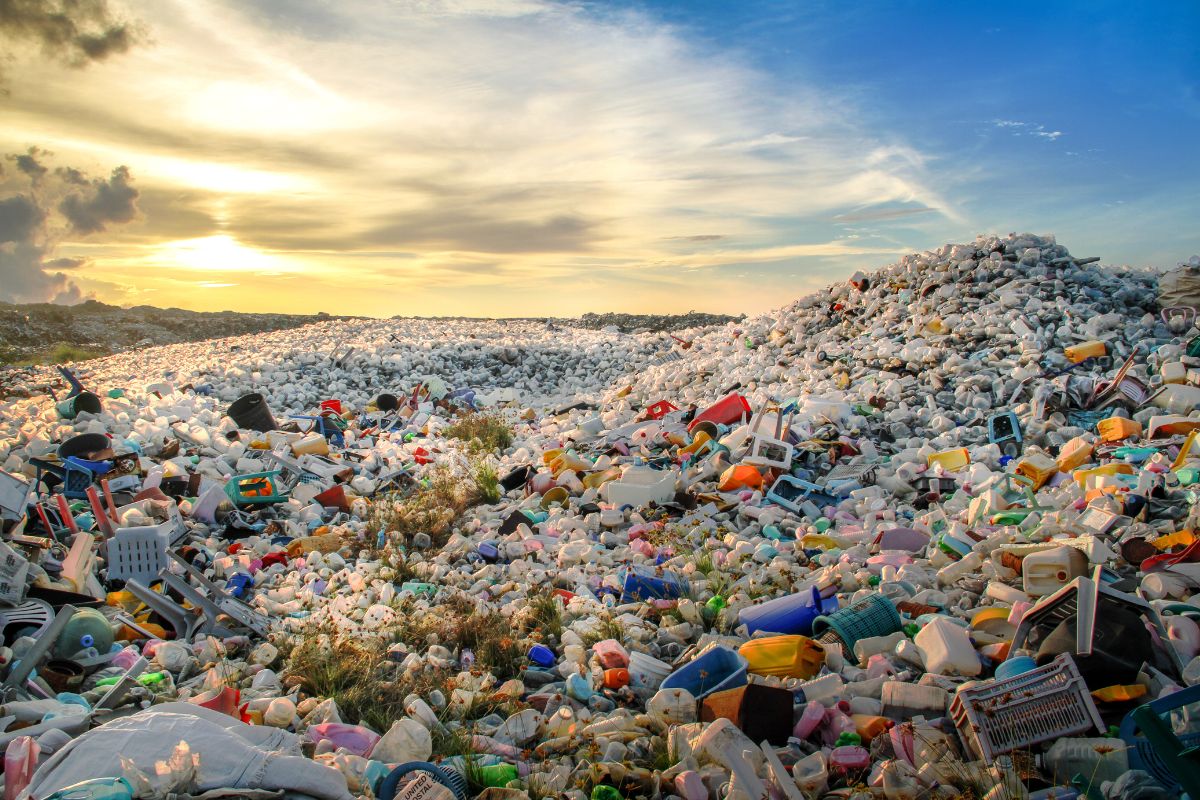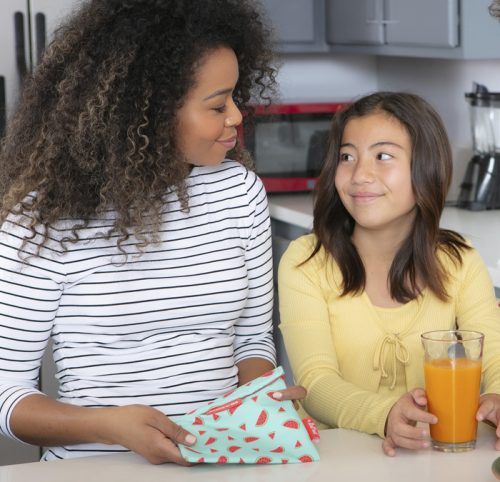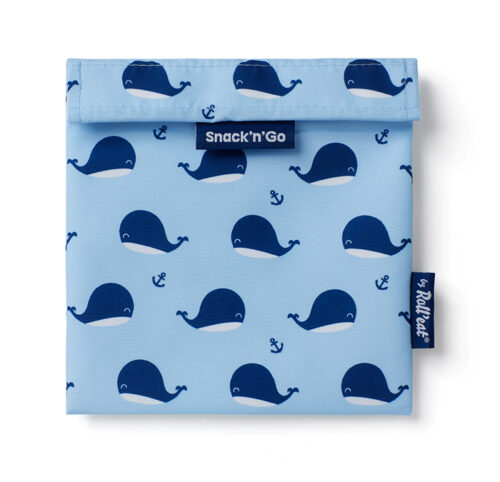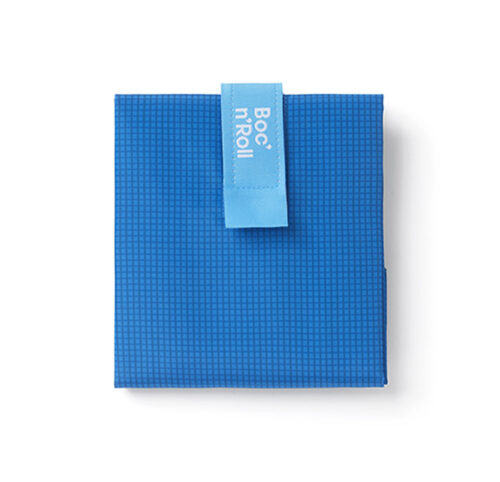Living low-waste is about adopting a conscious lifestyle that seeks to minimize waste generation. This approach encompasses different aspects of our daily routines, from how we buy and consume products to how we manage our waste.
The main objective is to minimize the amount of waste we generate by opting for reusable, durable alternatives and avoiding single-use products.
The objective of low-waste living
It’s a commitment to the environment and a conscious approach to waste reduction. Embracing this philosophy involves minimizing the amount of waste we generate daily by prioritizing reuse, recycling, and reduction in our everyday choices.
This approach aims not only to decrease the amount of trash we produce but also to rethink our relationship with the products we consume, emphasizing durability, reusability, and sustainability.
Living zero waste entails a comprehensive transformation in how we consume, promoting more responsible practices that are environmentally friendly and seek minimal impact on our planet.
Responsible consumption in the low-waste philosophy
Responsible consumption is central to this philosophy, where quality is valued over quantity and the aim is to purchase only what is necessary. It promotes awareness of the environmental impact of our consumption choices, opting for sustainable products and supporting initiatives that prioritize responsible production.
In addition to individual actions, low-waste living involves community involvement and activism. It educates and encourages change at the societal level, promoting initiatives that promote large-scale waste reduction and raising awareness of the importance of this sustainable lifestyle.

Change in your life to have a low-waste lifestyle
It is a change of mindset that seeks to minimize environmental impact, promote sustainability and responsibility in all our actions, from consumption decisions to the management of our waste.
Of course, low-waste living is a holistic approach that encompasses several areas of daily life and goes beyond simply reducing waste. Here is an extension of some important aspects:
Change in mindset and habits
- Consumption awareness: this is about changing the “use and dispose” mentality to one that is more reflective and conscious about the environmental impact of our purchasing and consumption decisions.
- Prioritise quality over quantity: Opt for durable, high quality products rather than disposable items with a short shelf life.
- Reject the unnecessary: Learn to say no to single-use products or to gifts and items that are not really needed.
- Minimise food waste: Plan shopping, use all food before it spoils and compost food waste.
Reduction in the use of plastics and packaging
- Sustainable alternatives: Using cloth bags, reusable water bottles, reusable wrappers instead of aluminum foil or plastic wraps, among others.
- Choosing products with less packaging: Preferring items with minimal packaging or those made from recycled and recyclable materials.
Strategies to reuse and prolong the lifespan of objects
- Giving objects a second life: Instead of disposing, seeking creative ways to repurpose items for other purposes.
- Fixes and repairs: Learning basic repair skills to extend the lifespan of clothing, furniture, electronic devices, etc.
Composting and responsible waste management
- Home composting: Turning food scraps and organic waste into compost to enrich the soil.
- Proper waste separation: Sorting waste for appropriate recycling and supporting selective waste collection in the community.
Engagement and education
- Continuous education: Constantly learning about sustainable practices and sharing knowledge with others to raise awareness about the importance of reducing waste.
- Community involvement: Participating in local groups, events, or campaigns that promote waste reduction and environmental sustainability.
Adopting a low-waste lifestyle entails ongoing commitment and a willingness to adapt and learn as one progresses on this journey towards a more sustainable and environmentally responsible life.
Low-waste living is a zero-waste approach
You don’t need to completely overhaul every corner of your home with waste-free products. The low-waste lifestyle draws inspiration from the zero-waste approach, understanding that achieving absolute zero waste is rarely feasible for most people.
The new R to the five Rs
The unattainability of zero waste can be mitigated through the accessibility of low-waste. The five Rs of zero waste – Refuse, Reduce, Reuse, Recycle, and Rot (Compost) – are acknowledged in the low-waste approach. Additionally, another R is added: Repair.
Simple repairs like fixing clothes or replacing buttons are common examples. Moreover, recent “right to repair” legislations in Europe aim to have electronics manufacturers design products that are repairable for seven to ten years.
This change could make repair culture more accessible.
While repair culture is gradually integrated, we can focus on the other five Rs to reduce waste. How? By adopting one or more tips for living with low-waste.
Tips for a low-waste lifestyle
If you seek more ways to lessen your impact, here are some of our preferred zero-waste tips:
- Assess your actual needs before purchasing. Question if you truly need something new or if you can do without it.
- Simplify your life. Consider having fewer possessions and focus on what truly matters to you.
- Give objects a second life. Reuse products instead of discarding them, either by rethinking their use or finding new creative ways to utilize them.
- Sort your waste for recycling. Ensure recyclable materials are disposed of properly to reduce their environmental impact.
- Turn food and garden waste into nutrients for the soil through composting.
- Learn to repair objects instead of discarding them. Look for local workshops or online tutorials that teach basic repair skills.
These tips can represent the first step towards a more sustainable, low-waste lifestyle, without feeling pressured to achieve perfection in zero waste.
The core of a low-waste society
There are numerous books on sustainability and zero waste that explain the why and how of minimalism, but essentially, it boils down to this: consume only what you truly need. Instead of impulsive shopping, adopt a more thoughtful approach to your consumption.
Wait a week, a month, or a year, and if you still need something, find a way to obtain it sustainably. You’ll have fewer things, and your life will be more fulfilling for it.
Improve your recycling habits
In addition to aiming for low-waste packaging, you can also improve your recycling habits. Start by recognizing if you practice ‘wishcycling’ or aspirational recycling, hoping that anything can be recycled. Incorrect recycling can increase the use of resources to transport non-recyclable materials to landfills (which is worse than simply discarding it in the first place).
It’s hard to be perfect, but knowing the seven types of plastic is a good start to becoming a recycling pro.
The good news is that recycling contamination is increasingly recognized as a significant problem. For instance, the EPA has outlined plans to enhance education and support in the United States as part of its National Recycling Strategy.
By reducing the amount of food waste sent to landfills (estimated by the EPA at 21.6% of all solid waste), we’re not only reducing the burden on constantly expanding landfills but also minimizing methane emissions, a greenhouse gas 25 times more potent than CO2.
Fortunately, composting, even in apartments, has the potential to reduce the environmental footprint of food waste while creating a valuable resource for your garden.
How to start low-waste lifestyle
Learn about composting
Start by learning what you can compost and what is not compostable. Then, equip your kitchen with an indoor composting container and get ready to witness the benefits of composting for yourself.
Low-waste swaps don’t have to be complicated or costly. If you’re starting to live with less waste, consider these simple zero-waste swaps:
- Reusable and eco-friendly water bottles
- Reusable shopping bags
- Reusable coffee cups
Other items in your zero-waste kit might include a bamboo toothbrush, reusable utensils, and food storage containers (many of which can be reused glass jars).
Have a low-waste kitchen
A low-waste kitchen should reduce waste from both food and packaging. With some planning and conscious shopping, you can ensure that everything you purchase gets prepared and consumed without ending up in the trash.
Cooking in bulk and freezing portions for later, as well as consuming some leftovers for lunch the next day, are some of the most effective ways to achieve this.
To address packaging, start using reused glass jars. But you can go further by employing a variety of plastic-free food storage containers and learning how to freeze meat without plastic. You might also consider how often you rely on individually wrapped portions and snacks.
Pick a few zero-waste cooking ideas to try and, if you’re willing to take it further, learn how to preserve food at home.
Grocery shopping with less waste
Across the world, more bulk and low-waste stores have emerged offering a diverse range of products, from beauty and personal care items to foods, kitchen utensils, and waste-free cleaning products. These establishments provide a sustainable alternative to traditional excessive packaging.
In case these stores haven’t reached your area yet, specialized online zero-waste and bulk shopping stores can become your allies for acquiring products you love without all the excess packaging.
If this option isn’t available either, consider purchasing products in larger containers or opt for those with easily recyclable or reusable packaging, thus contributing to reducing generated waste.
Seek for low-waste beauty products
While some may feel hesitant to try methods like “no poo” (abandoning conventional shampoo) or stop using traditional deodorants, the low-waste approach still offers eco-friendly alternatives for beauty products.
When seeking low-waste beauty products, it’s advisable to select options that can be returned, composted, or at least recycled, prioritizing those made from plastics classified as #1 and #2.
It’s important to note that many Material Recovery Facilities (MRF) may not accept most beauty product containers due to their small size or mixed material composition, making processing difficult. For instance, shampoo caps, lipstick tubes, eyeshadow containers, and similar items might not be accepted in some conventional recycling systems.
However, there is a growing number of makeup and beauty brands committed to sustainability that use compostable or refillable packaging. These brands offer a wide range of skincare products, toothpaste, shampoo, and deodorants with a low-waste focus, facilitating the transition to a more sustainable lifestyle in the beauty and personal care realm.
Use zero-waste cleaning products
Cleaning without waste is a task simpler than one might imagine. Most dirt in the kitchen and bathroom can be removed using simple ingredients like white vinegar, baking soda, and citrus peels to provide aroma. Additionally, old t-shirts can be repurposed as cleaning rags.
Embellish your home with low-waste decoration
Similarly, vintage home décor and sustainable interior brands can offer maximal style with minimal impact. Amidst the chatter about zero waste, it’s crucial to recall its more accommodating and less stringent counterpart: reduced waste.
If we perceive it as a range, zero waste is presumed to be, well… zero. Reduced waste allows for interpretation, making it more attainable for those of us lacking the time or resources to sew our own garments or frequent three diverse bulk stores each week.
Low-waste fashion
Low-waste fashion involves adopting a sustainable and mindful approach to the garments that make up your wardrobe. This includes moving away from rampant consumerism and opting for durable, quality clothing.
The movement towards a low-waste wardrobe promotes reusing clothes, buying second-hand, and supporting brands committed to sustainable practices in clothing manufacturing and recycling.
Take it easy to adapt to this new philosophy
Embracing a reduced waste lifestyle involves making feasible and sustainable adjustments in your routine that you can consistently uphold, without imposing the burden of perfectionism on yourself.
Ultimately, having more individuals opt for a reduced waste lifestyle must be superior to a handful practicing zero waste while leaving everyone else feeling too overwhelmed to attempt it, don’t you think?
Living with low-waste means making changes in your lifestyle where possible and sustainable for you to personally maintain, without putting yourself under the pressure of perfectionism. Ultimately, more people choosing a low-waste lifestyle have to be better than a few people living zero waste and everyone else feeling too overwhelmed to try it, right?
You have many options of products in the market
For those who prefer not to make their own solutions, various eco-friendly cleaning products are available on the market presented in compostable packaging. These products offer environmentally friendly alternatives, such as waste-free dish soap or laundry detergents, providing more sustainable options for home cleaning.
We can help you on your journey
Roll’eat offers an extensive range of products centered on waste reduction and environmental care, aiming to be your perfect partner in embracing a low-waste lifestyle in an increasingly sustainability-focused world.
With a strong focus on sustainability, our collection of eco-friendly items is designed to encourage a low-waste lifestyle and facilitate the shift towards more eco-conscious practices in daily life.
We are committed to delivering convenient and long-lasting solutions for storing, transporting, and consuming food responsibly. Our products are crafted using environmentally friendly materials, ensuring accessibility, functionality, and durability while allowing our customers to make more sustainable choices without compromising on convenience or style.
Discover the Roll’eat philosophy
Our brand aligns seamlessly with the principles of the low-waste movement, enabling individuals to take significant steps toward waste reduction. Roll’eat eco-friendly range empowers users to contribute to a greener future while embracing the ethos of the low-waste lifestyle that is highly valued today.
- Reusable Packaging: We offer a selection of products such as bags and reusable wraps, perfect for reducing single-use plastics and avoiding excessive, unnecessary food wrapping. Our containers are eco-friendly, easy to clean, and designed to be durable, allowing you to make more sustainable choices in your day-to-day life.
- Practical and Functional: Our products not only shine in their commitment to the environment but also in their practicality. With our products you will be able to enjoy a convenient solution for storing, transporting, and consuming your food responsibly, whether at home, school, work, or while traveling.
- Supporting the Low-Waste Movement: Our mission is to support your journey towards a low-waste lifestyle. From reusable wrappers to practical snack bags, Roll’eat aligns perfectly with a waste reduction strategy and promotes awareness of the importance of making sustainable changes in everyday life.
- Driving Sustainability with us: Our products are designed with the environment in mind, giving you the opportunity to adopt more sustainable practices without sacrificing comfort or style. Join us in our commitment to a greener future and discover how Roll’eat can be your perfect companion on the path to a low-waste lifestyle!
Don’t hesitate any longer and start adapting your life to the low-waste living philosophy, to help our planet. We are here to help you!










